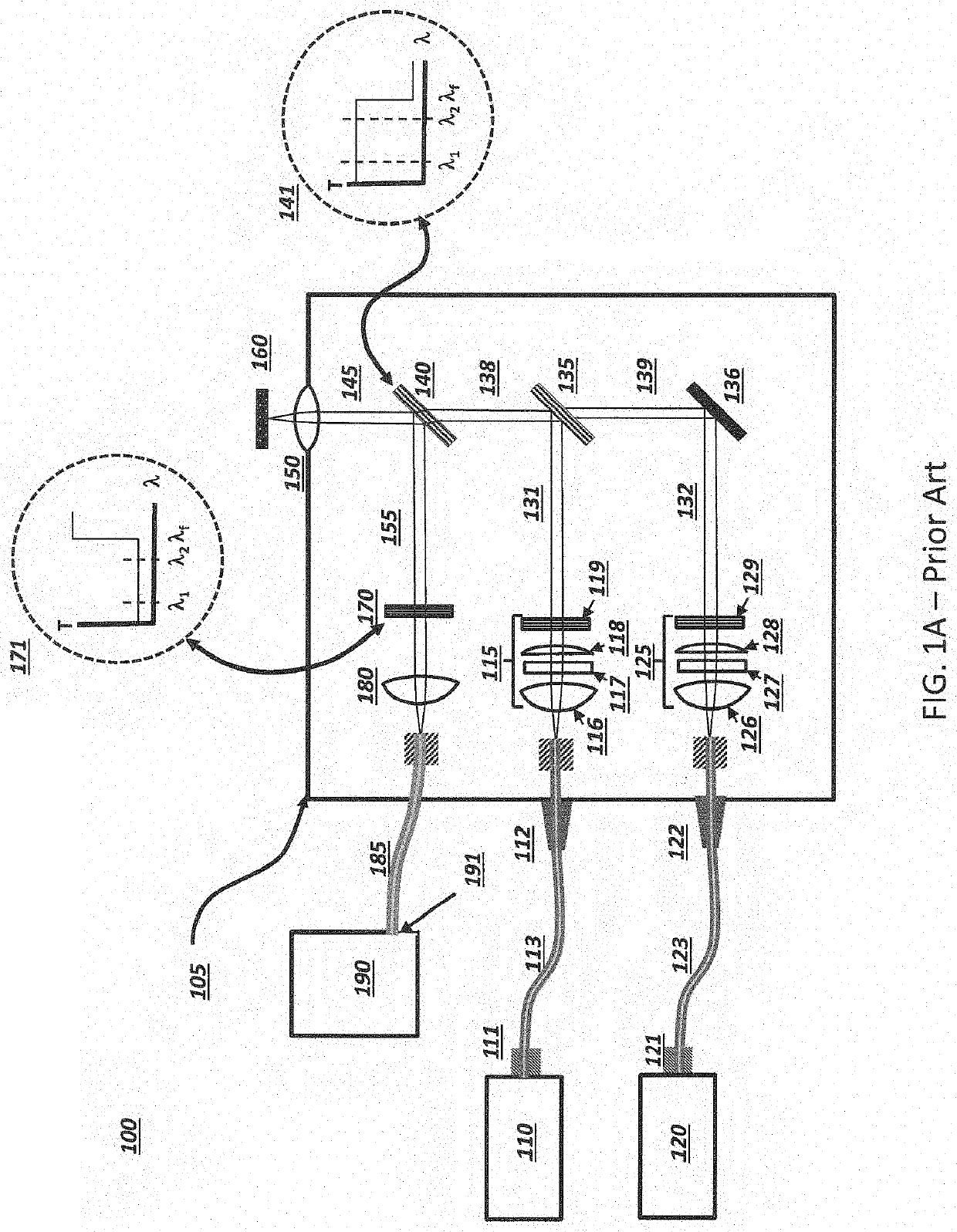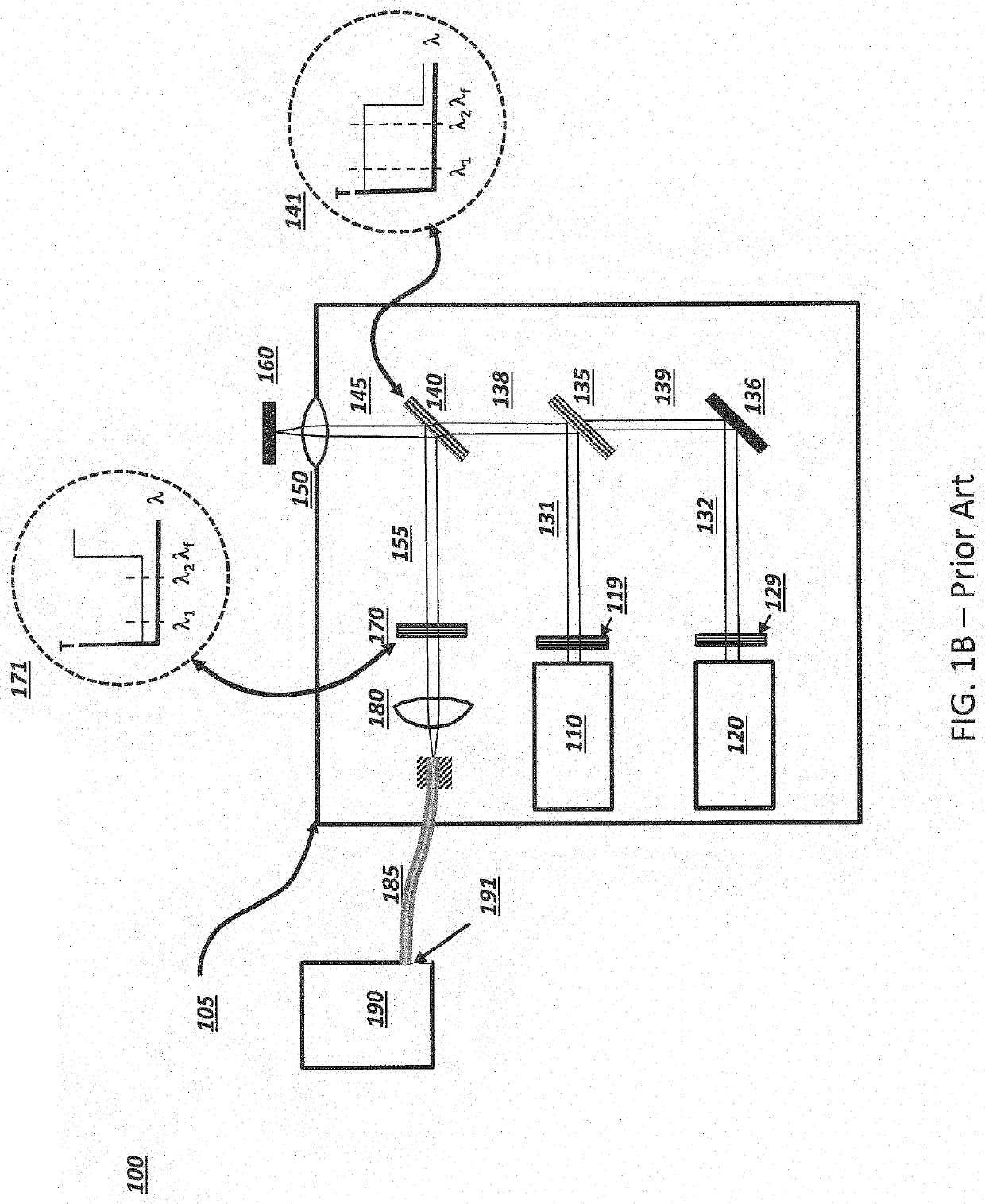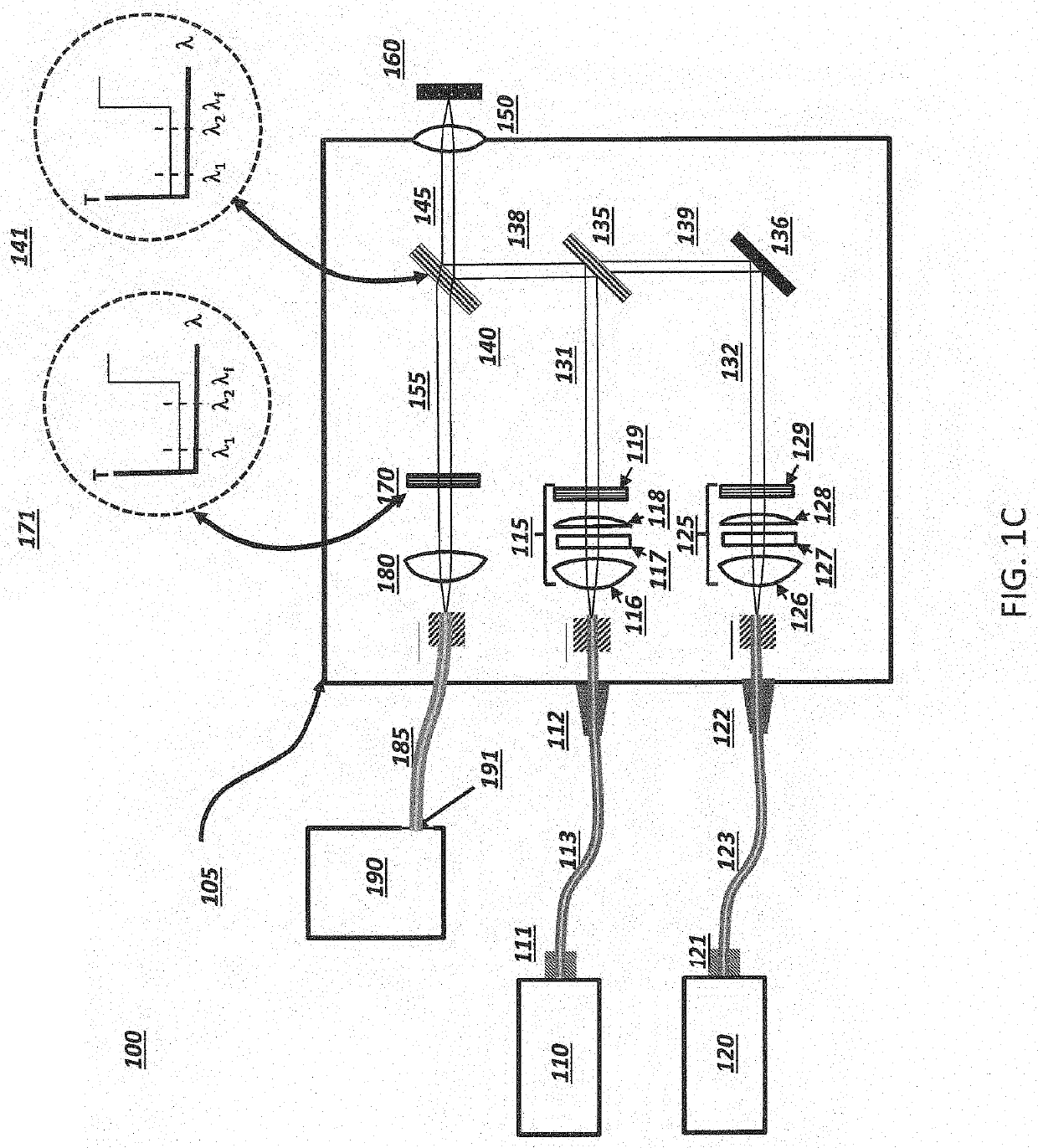Method for Selection of Raman Excitation Wavelengths in Multi-Source Raman Probe
- Summary
- Abstract
- Description
- Claims
- Application Information
AI Technical Summary
Benefits of technology
Problems solved by technology
Method used
Image
Examples
Embodiment Construction
[0054]FIG. 1A illustrates a block diagram of an exemplary embodiment of a compact dual-wavelength co-aligned / reflective Raman probe configuration where the light outputted by corresponding ones of the illustrated two laser sources are combined along a same optical path using wavelength beam combining with a dichroic mirror, which is similar to the configuration shown in, and disclosed with regard to FIG. 5 of U.S. Pat. No. 10,359,313, which discloses the use of diode lasers as the light sources in Raman spectroscopy.
[0055]In this exemplary embodiment, a dual wavelength Raman probe 100 includes a housing 105 and two external light sources 110 and 120, (hereinafter referred to as lasers or laser sources. However, it would be recognized that the light sources 110 and 120 may similarly be non-lasing sources, e.g., a super luminescent diode) coupled via optical fibers 113 and 123, respectively, to the internal optics within housing 100. The lasers 110 and 120 may emit light in a single s...
PUM
 Login to View More
Login to View More Abstract
Description
Claims
Application Information
 Login to View More
Login to View More - R&D
- Intellectual Property
- Life Sciences
- Materials
- Tech Scout
- Unparalleled Data Quality
- Higher Quality Content
- 60% Fewer Hallucinations
Browse by: Latest US Patents, China's latest patents, Technical Efficacy Thesaurus, Application Domain, Technology Topic, Popular Technical Reports.
© 2025 PatSnap. All rights reserved.Legal|Privacy policy|Modern Slavery Act Transparency Statement|Sitemap|About US| Contact US: help@patsnap.com



